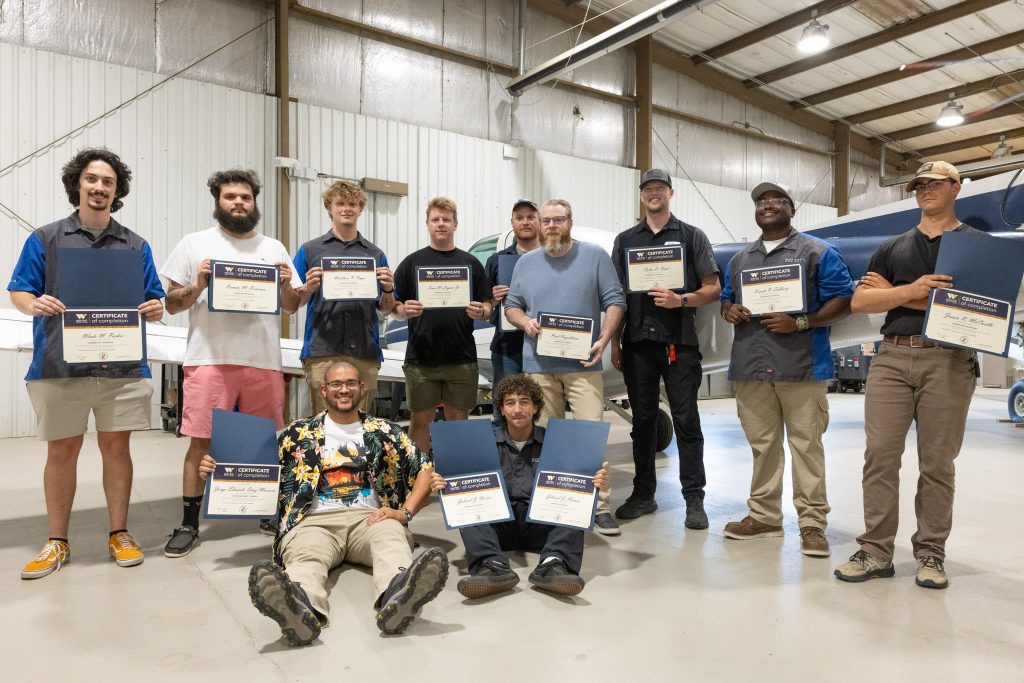Students in Wayne Community College’s Aviation Systems Technology program have completed a milestone on their journey to become certified aircraft mechanics.
Ten students earned Powerplant and/or Airframe Certificates of Completion, allowing them to take the Federal Aviation Administration (FAA) general and powerplant and/or airframe mechanic written exams.
Once these students pass the written exams, they become eligible to take the oral and practical exams. When they successfully complete all exams, they receive a temporary Airframe or Powerplant Mechanic certificate so that they may exercise their privileges until their permanent certificates arrive.
One student in the program earned a General Certificate of Completion, allowing them to take the FAA’s general written exam before they complete further rating certifications.

The students and their certifications, listed by city of residence, are:
Fuquay-Varina
Wade Parker – Powerplant
Goldsboro
Sean Logan – Powerplant
Matthew Raper – Powerplant
Princeton
Paul Napoletano – Powerplant
Raleigh
Jorge Diaz – General
Gabriel Norris – Powerplant, Airframe
Wade
Roman Reconnu – Powerplant
Jacob Sheets – Powerplant
Wilmington
Keonte Sidbury – Powerplant
Wilson
Colin Best – Powerplant
Youngsville
Jason McCardle – Powerplant
WCC’s Aviation Systems Technology program offers an Aviation Systems Technology Degree, Aviation Systems Technology Airframe Diploma, and Aviation Systems Technology Powerplant Diploma.
For students interested in getting a four-year degree, WCC’s Associate of Applied Science degree in Aviation Systems Technology qualifies for East Carolina University’s Bachelor of Science in Industrial Technology Transfer Program.
To learn more about the program, contact Mike Crumpler (919-739-6824 or smcrumpler@waynecc.edu) or Kenneth Creech (919-739-6823 or kbcreech@waynecc.edu).
About Wayne Community College
Wayne Community College is a public, learning-centered institution with an open-door admission policy located in Goldsboro, N.C. As it works to develop a highly skilled and competitive workforce, the college serves around 10,000 individuals annually as well as businesses, industry, and community organizations with high quality, affordable, accessible learning opportunities, including more than 150 college credit programs. WCC’s mission is to meet the educational, training, and cultural needs of the communities it serves.
